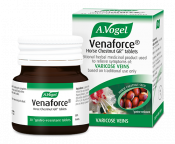An introduction to varicose veins in pregnancy
Varicose veins are a common problem. This is especially so among pregnant women, with about 40% of women experiencing symptoms during pregnancy.
They are most common in the legs, although they may also appear on the vulva or vagina. The reassuring news is that if you develop varicose veins during pregnancy but didn’t have them before, it is likely that they will disappear a few months after the baby is born.
Why do varicose veins occur during pregnancy?
As the baby grows, pressure on the veins in the pelvis increases. This is particularly so for a large vein known as the inferior vena cava, which collects blood from the legs and pelvis.
Blood flow from the legs decreases, veins swell and this causes the internal valves in the veins to start leaking, worsening the process. The result of all this is that blood starts to pool in the leg veins, which then swell, giving rise to varicose veins.
Additionally, pregnancy causes major changes in hormones, in particular the hormone progesterone. Increased levels of this hormone cause your blood vessels to relax, making it easier for veins to stretch and swell.
The likelihood of you developing varicose veins during pregnancy, and the severity of symptoms, increases with each pregnancy. Additionally, pregnancy with twins (or more) is likely to worsen the condition, as multiple babies put more pressure onto your pelvic region.
What are the symptoms?
Varicose veins in pregnancy give rise to symptoms similar to those of ordinary varicose veins. Initially, veins become more noticeable under the skin and then become swollen with a blue or purple colour. Your legs may begin to feel heavy, swollen and prone to cramp, particularly at night or if sitting or standing for long periods of time.
Are varicose veins during pregnancy serious?
Varicose veins may not be the prettiest, and may even be tender or itchy, but they tend not to be serious.
A small proportion of people develop small blood clots near the surface of the skin. Although these clots are not cause for great concern, you should seek medical advice as they can easily worsen, or become infected. If this is the case, then you may require treatment with antibiotics.
These blood clots should not be confused with deep vein thrombosis, a condition where blood clots develop in the deep veins of the leg. This is a serious condition, and although your chances of developing it when pregnant are slightly raised, it is still an unusual condition.
Treatment
Most women will take the same attitude as their doctors – when pregnant, you should take medicines only when it is absolutely necessary.
Hence, if varicose veins have to be treated during pregnancy, the aim should be to relieve symptoms as easily as possible whilst avoiding the use of any medicines (conventional or herbal) taken internally. The usual methods of treating varicose veins are unlikely to be relevant.
The advice given on our page on preventing varicose veins will be helpful to you. In addition, compression stockings may be recommended by your GP or alternatively, you could try using Horse Chestnut gel on your legs, relieving the feeling of tiredness or aching.








